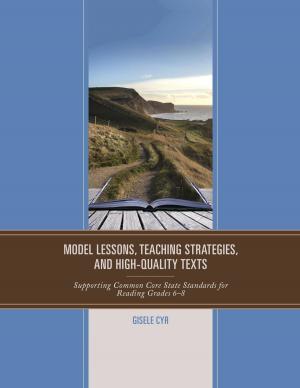The Library's Role in Supporting Financial Literacy for Patrons
Nonfiction, Reference & Language, Language Arts, Library & Information Services| Author: | ISBN: | 9781442265936 | |
| Publisher: | Rowman & Littlefield Publishers | Publication: | May 17, 2016 |
| Imprint: | Rowman & Littlefield Publishers | Language: | English |
| Author: | |
| ISBN: | 9781442265936 |
| Publisher: | Rowman & Littlefield Publishers |
| Publication: | May 17, 2016 |
| Imprint: | Rowman & Littlefield Publishers |
| Language: | English |
Library Roles in Achieving Financial Literacy among its Patrons is a collection of articles from 25 librarians in different parts of the U.S. and Canada, each contributing 3,000-4,000 words: concise chapters with sidebars, bullets, and headers; there is an introduction. Contributors were selected for the creative potential in their topics, those that can be used in various types of libraries and that demonstrate a command of financial literacy and are able to communicate what they know to aiding users solve their financial information problems. The collection has three sections. The first provides an overview of financial literacy: what it means generally, what needs exist among library patrons, and what approaches have been tried to date. The second section deals with resources that are available in libraries, or should be made available. These include collections, skill sets in librarians, program opportunities and others. The third section is a series of case studies that demonstrate successes and best practices.
Library Roles in Achieving Financial Literacy among its Patrons is a collection of articles from 25 librarians in different parts of the U.S. and Canada, each contributing 3,000-4,000 words: concise chapters with sidebars, bullets, and headers; there is an introduction. Contributors were selected for the creative potential in their topics, those that can be used in various types of libraries and that demonstrate a command of financial literacy and are able to communicate what they know to aiding users solve their financial information problems. The collection has three sections. The first provides an overview of financial literacy: what it means generally, what needs exist among library patrons, and what approaches have been tried to date. The second section deals with resources that are available in libraries, or should be made available. These include collections, skill sets in librarians, program opportunities and others. The third section is a series of case studies that demonstrate successes and best practices.















